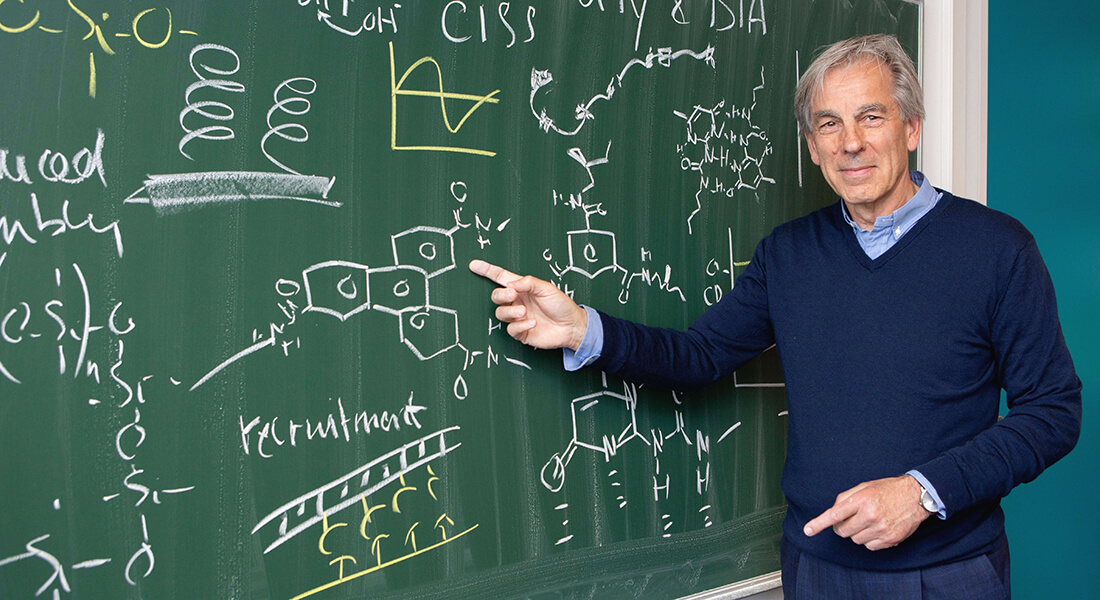The non-covalent synthesis of functional supramolecular systems and chiral materials

Lecture by Professor E.W. Meijer
Institute for Complex Molecular Systems, Eindhoven University of Technology
Abstract
The intriguing prospects of molecular electronics, nanotechnology, biomaterials, and the aim to close the gap between synthetic and biological molecular systems are important ingredients to study the cooperative action of molecules in the assembly towards functional supramolecular materials and systems.
For chemists, the non-covalent synthesis of these supramolecular architectures is regarded as one of the most challenging objectives in science: How far can we push chemical self-assembly and can we get control over the properties and functions of the responsive and adaptive architectures made?
Moreover, the increasing number of different components in the assembly processes increases the complexity of the system, as many competing events occur, and pathway selection is needed to arrive at the state required for the function.[1]
Mastering this complexity with a combination of experiments and simulations is a prerequisite to achieve the challenges set in creating functional materials and systems. In the lecture we illustrate our approach using chiral systems as the main component in multicomponent assemblies.
In all cases the control over the position of the molecules in time and space is required. We will show the concept for their use as nanomaterials for electronics, novel chiral nanomaterials and as active ingredients in biomedical applications, with supramolecular polymers as a key element.[2]
[1] G. Vantomme and E.W. Meijer, Science 2019, 363, 1396-1397.
[2] T. Aida and E.W. Meijer, Israel J. Chem. 2020, 60, 33-47.
Date and time:
Friday 14 November 2025, 9:00 am
Place:
Magrethe Bohr Auditorium, NBB, Jagtvej 132, 2200 København N
